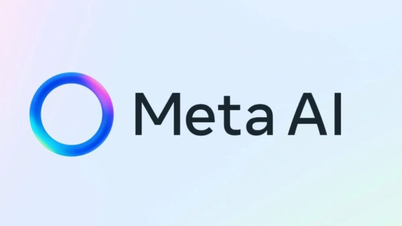
The Special Role of AI in e-Government
E-government systems use AI to improve administrative processes, refine policy decisions, and provide seamless service to citizens. However, AI deployments need to overcome ethical, security, and operational hurdles to realize their full potential.
Enhancing public services through AI
AI helps e-government operate more transparently, efficiently, and focus on citizen experience. AI-powered virtual assistants can respond to citizen questions instantly, reduce wait times, and improve access to services.
By analyzing large datasets, machine learning algorithms discover patterns that support policymakers in urban planning, health care , and infrastructure. With automation, administrative procedures such as tax filing, license renewal, or complaint handling can be carried out more efficiently, reducing human intervention and curbing corruption.
The application of AI in surveillance and cybersecurity also strengthens national security and protects sensitive data. Predictive analytics in government operations allows for proactive solutions to issues such as disaster management and resource allocation.
Public administration automation
By automating repetitive tasks, such as document verification or permit approval, AI increases processing efficiency along with tax filing processes. By analyzing historical data, AI can detect weaknesses and suggest improvements.
A study on AI-enabled public administration identified seven key performance metrics: process efficiency, citizen engagement, cost savings, policy analysis, transparency, service quality, and infrastructure optimization.
Data-driven decision making
In e-government, data-driven policy decisions bring more transparency and efficiency through real-time data analysis. Combining AI and big data, government agencies can anticipate challenges and allocate resources more appropriately.
Sensor data from the Internet of Things (IoT) supports smart city projects in traffic management, waste treatment, and energy consumption reduction. In healthcare, predictive analytics helps predict disease outbreaks and optimize vaccine distribution. In social security, AI helps identify the right beneficiaries and prevent fraud.
When policymakers apply AI analytics, they can make evidence-based decisions, focus on citizen interests, and increase public trust in government.
AI technology is key in e-Government
- Machine learning in policy optimization: Assess current policy effectiveness based on historical data and predict future impacts.
- Chatbots and virtual assistants: Help interact seamlessly with citizens, answer questions, process applications and complaints.
- Facial recognition and biometric authentication: Improves security through e-passports, elections, law enforcement. However, this technology also raises major privacy concerns.
- Blockchain for secure transactions: Combining AI and blockchain ensures transparent, tamper-proof government records and reduces fraud through smart contracts.
The Challenge of AI in e-Government
- Ethics and Privacy: Handling sensitive personal data can easily lead to surveillance abuse, privacy violations, and biased outcomes.
- Cybersecurity risks: AI systems can be hacked, requiring governments to adopt strong encryption protocols, multi-factor authentication, and constant monitoring.
- Digital divide: People have unequal access to digital technology , making it necessary to ensure inclusiveness in AI implementation, especially for disadvantaged groups.
- Compatibility with legacy systems: Agencies are still using outdated systems, making AI integration difficult.
The Future of AI in e-Government
AI promises to play a transformative role in the entire journey, especially in the development of smart cities: dynamic traffic management, optimal waste treatment, improved emergency response capabilities – all in real time.
In the judicial field, AI can assist in analyzing case files, reducing case backlogs, shortening litigation processes and making fairer recommendations, contributing to building a more efficient and transparent legal system.
AI also helps governments make predictive and adaptive policies, simulate impacts before implementation, and make better decisions.
AI offers many opportunities to increase efficiency and improve public services, but it also brings with it ethical, security and infrastructure challenges. If shaped by appropriate policies, AI-enabled e-government will become a more efficient, transparent and sustainable system for serving citizens.
(According to Forbes)
Source: https://vietnamnet.vn/ai-trong-chinh-phu-dien-tu-co-hoi-but-pha-va-thach-thuc-phia-truoc-2436685.html






![[Photo] Solemn opening of the 1st Government Party Congress](https://vphoto.vietnam.vn/thumb/1200x675/vietnam/resource/IMAGE/2025/10/13/1760337945186_ndo_br_img-0787-jpg.webp)






























![[Photo] General Secretary To Lam attends the opening of the 1st Government Party Congress](https://vphoto.vietnam.vn/thumb/1200x675/vietnam/resource/IMAGE/2025/10/13/1760321055249_ndo_br_cover-9284-jpg.webp)






































































Comment (0)